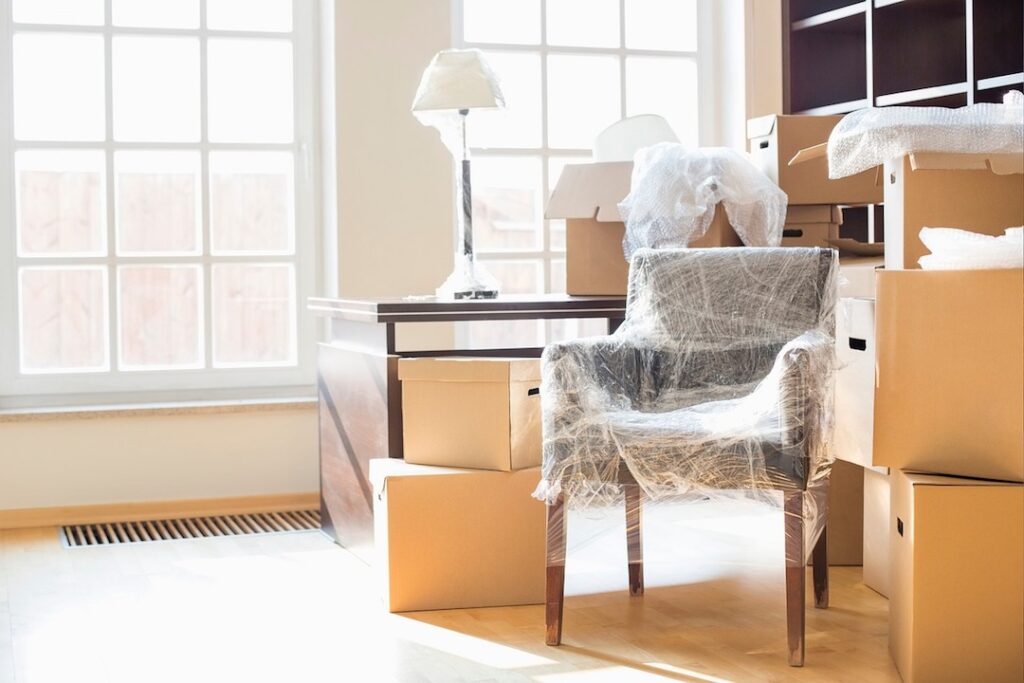As baby boomers enter their senior years, they’re downsizing from single-family homes to smaller spaces. West Island professional organizer Cara Persram explains how to reduce the stress of downsizing.

At some point in their lives, homeowners face the task of downsizing to smaller living spaces. While some may embrace the prospect happily, others can be overwhelmed, particularly if they’ve accumulated a lot of belongings over several decades.
Downsizing from a large house to a condo, townhouse or apartment involves the relinquishment of possessions, often many of them. But it’s possible to reduce the stress of downsizing, says Cara Persram, a professional organizer in the West Island. With planning and resolve, she says, downsizers can shift to compact-space living without too much anxiety.
Known as The Passionate Organizer, Cara helps her clients de-clutter and organize their homes. “Start by asking yourself which furniture pieces you want to take to your new home,” she says. “Choose pieces that you not only love, but that will fit into your smaller space without crowding rooms.”
If the new space needs furniture that can serve more than one purpose, she adds, consider a tall shelving unit or ones with storage drawers. “These are practical for small spaces.”
One source of stress for people downsizing from single-family homes where they’ve raised families is the question of what to do with their children’s belongings. “If you still have items that belong to your adult children, have your children visit and take away what they want to keep,” Cara says. “The kids may want to continue storing their belongings with their parents. But this is the time to set boundaries. Keep repeating that you’re moving to a smaller space.”
There is also the question of what to do with such sentimental possessions as children’s art, schoolwork and report cards, even long after the children have left home. “You can scan what you want to keep, which creates a digital memory, then offer the originals to your respective children.” Cara says.
As for gifts from family and friends, she suggests keeping the items you like, but releasing, without guilt, the objects that don’t bring you joy. “If there are things you’re not certain of, display them for a week and then look at them again to decide if you are really done with them,” she says. “Ask your children if they want to take back gifts that they’ve given you. If they don’t, donate them.”
As for possessions you’d like to sell, she suggests doing it before listing the house for sale. “”If you can afford to give possessions away to charity, that’s the easiest thing to do, and it helps others in need,” Cara says. “This is the time to go through your clothes and purge down to the level that will enable you to fit them into the new space.”
Dishes also require careful consideration before downsizing. “It’s important to be realistic about how many place settings and serving dishes you will really need,” Cara says. “If you also have heirloom china, inherited from parents or grandparents, consider keeping one or two place settings and giving away the rest.”
Collections of objects used for hobbies can also add to the stress of downsizing, she says. “Look at what you’ve collected and no longer use. There will be some emotional detachment that has to be done. I’ve seen a lot of that,” she says. “Often, people have hobby projects that are unfinished. So the question is whether you’ll take them with you. This takes a mindset change, so there is a letting go that has to happen. If you donate sports equipment, you know that there are people who will enjoy it.”
Purging accumulated paper is another necessary step in the process. “Often, I see old magazines, pamphlets and children’s artwork,” Cara says. “You don’t have to get rid of all of them. You can keep the things that are really important to you. This may mean making things smaller.” Some papers can be consolidated in a scrapbook or scanned and kept electronically.
As for bedding and towels, Cara recommends keeping two sets of sheets for each bed and two sets of towels per person. “Whatever bedding and towels you don’t keep can be donated to your local Renaissance or humane society, depending on their condition,”
she says. “Animals arrive at shelters with nothing. So donations of bedding are very welcome for them.”
And do remember to rid your shed or garage of the yard tools, lawnmowers and snow blowers you’ll no longer need. “The shed will need to be purged excessively,” Cara says. “You likely won’t have a yard anymore.”

While the process of casting off belongings can be emotional, reducing possessions before you downsize to smaller surroundings can also be the beginning of a more simplified life.
For more information and advice on how to navigate a downsizing, see www.passionate-organizer.ca. Read more about Cara here.








